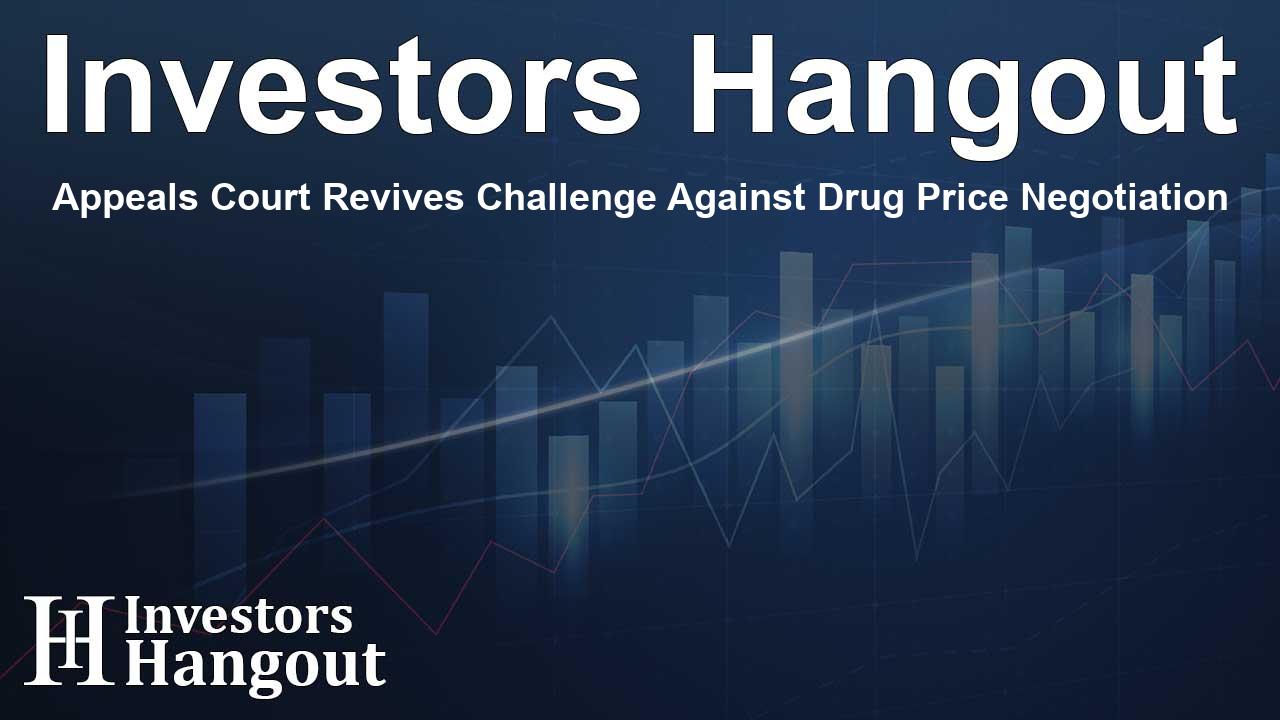Appeals Court Revives Challenge Against Drug Price Negotiation

Revival of Legal Action on Drug Price Negotiations
In a significant legal development, a U.S. appeals court has decided to revive a lawsuit initiated by various healthcare and pharmaceutical groups. This lawsuit challenges a groundbreaking law requiring pharmaceutical companies to negotiate drug prices with Medicare, the program that serves over 66 million Americans.
Background of the Case
The lawsuit, which has been brought forth by the Pharmaceutical Research and Manufacturers of America (PhRMA) among other groups, is part of an organized effort to block the government from executing its new drug price negotiation program. The recent ruling from the 5th U.S. Circuit Court of Appeals did not delve into the specifics of the dispute; rather, it focused on the procedural misstep of a Texas district judge who initially dismissed the case.
Judicial Missteps and Appeals Court's Decision
The district judge had ruled that he lacked jurisdiction to hear the case, a decision that the appeals court has now overturned. This means that the case will be revisited, potentially impacting the future of drug pricing in the U.S.
Timing and Implications of the New Law
While this legal battle unfolds, the government has already commenced the first phase of drug price negotiations. As a result, announcements have been made regarding significant reductions in prices for key medications. These cuts will have wide-reaching implications for consumers, particularly those reliant on medications such as Merck's diabetes treatment and insulin products from Novo Nordisk.
Government's Stance
Despite the ongoing litigation, the U.S. Department of Health and Human Services, the entity responsible for managing the drug negotiation program, has remained silent on the case's developments. This lack of communication might signify a firm commitment to push the initiative forward amidst legal challenges.
Broadening the Challenge
The challenge to the price negotiation program is part of a broader backlash from the pharmaceutical and healthcare sectors. These groups argue that the law, a centerpiece of President Joe Biden's health policy, creates excessive regulatory burdens and fines for non-compliance, fundamentally altering the landscape of pharmaceutical pricing strategies.
What's Next for the Parties Involved?
Moving forward, all eyes will be on how the court's revived case influences the pharmaceutical industry. Legal experts are watching closely as they anticipate how this will affect not only pricing negotiations but the broader health policy reforms that have been proposed. The stakes are high for drug companies who could face enormous fines if they refuse to comply with the new mandates.
Frequently Asked Questions
1. What is the significance of the appellate court's ruling?
The appellate court's ruling signifies that the lawsuit against the U.S. government's drug price negotiation program can proceed, potentially altering the program's implementation.
2. Who are the main parties involved in this lawsuit?
The primary parties are the Pharmaceutical Research and Manufacturers of America and additional healthcare organizations challenging the negotiation program.
3. How will the new drug pricing law impact consumers?
The law aims to reduce out-of-pocket costs for medications, making treatments more affordable for millions of Americans enrolled in Medicare.
4. What was the basis for the original dismissal of the case?
The original case was dismissed on jurisdictional grounds, with the judge ruling that certain claims needed to be addressed through the Department of Health and Human Services first.
5. When will the negotiated prices go into effect?
The new negotiated prices from the recent announcements are scheduled to go into effect in 2026, impacting the cost of significant medications.
About Investors Hangout
Investors Hangout is a leading online stock forum for financial discussion and learning, offering a wide range of free tools and resources. It draws in traders of all levels, who exchange market knowledge, investigate trading tactics, and keep an eye on industry developments in real time. Featuring financial articles, stock message boards, quotes, charts, company profiles, and live news updates. Through cooperative learning and a wealth of informational resources, it helps users from novices creating their first portfolios to experts honing their techniques. Join Investors Hangout today: https://investorshangout.com/
Disclaimer: The content of this article is solely for general informational purposes only; it does not represent legal, financial, or investment advice. Investors Hangout does not offer financial advice; the author is not a licensed financial advisor. Consult a qualified advisor before making any financial or investment decisions based on this article. The author's interpretation of publicly available data shapes the opinions presented here; as a result, they should not be taken as advice to purchase, sell, or hold any securities mentioned or any other investments. The author does not guarantee the accuracy, completeness, or timeliness of any material, providing it "as is." Information and market conditions may change; past performance is not indicative of future outcomes. If any of the material offered here is inaccurate, please contact us for corrections.